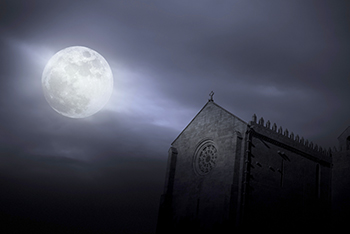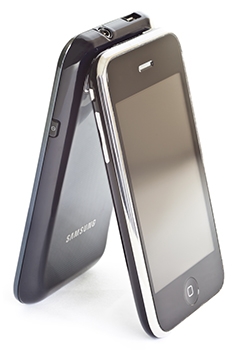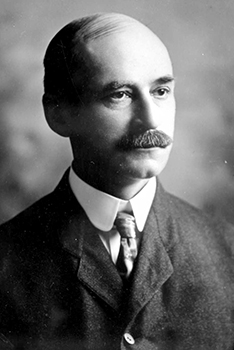 Out There
Out There
Haunted as a Matter of Law
It’s Halloween this month, so it’s worth telling a little tale about the famous haunted house case of Stambovsky v. Ackley. In that case, the plaintiff entered a contract to purchase a home in Nyack, N.Y., but soon learned that the house had a local reputation for possessing poltergeists.
The plaintiff commenced an action to rescind the contract.
The court ruled that the real estate broker was not under any duty to inform the potential buyer of “the phantasmal reputation of the premises,” but relied on equitable principles to allow rescission.
“Whether the source of the spectral apparitions seen by defendant seller are parapsychic or psychogenic, having reported their presence in both a national publication (Reader’s Digest) and the local press (in 1977 and 1982, respectively), defendant is estopped to deny their existence and, as a matter of law, the house is haunted,” the judge wrote.
In other words, if you claim your house is haunted and foster that reputation in the community, an unsuspecting buyer can use that against you.
 Tech Tip
Tech Tip
iPhone 6 or Galaxy Note 4: What is the Best Phone for Lawyers?
That’s a question legal website Above the Law recently explored, after launch of the much anticipated iPhone 6 (iOS operating system), which is in direct competition with the Samsung Galaxy Note 4 (Android operating system).
Here’s a brief breakdown on several aspects of these two phones, from Above the Law contributor Jeff Bennion:
Hardware specs. “The hardware specs on both phones are strong enough for any business purpose.”
Storage. Buyers can choose to buy an iPhone with up to 128GB of storage, with no SD card capability (SD cards are storage devices). The Note 4 allows users to start at 32GB and upgrade storage space on an SD card, but reading data internally is “much faster than reading data from an SD card.”
Software. “Since iOS market share is disproportionately larger in the legal community, you can expect creators of legal software to develop for the iPhone first.”
Conclusion. “They are both excellent high-end phones with pluses and minuses. I think a lot of lawyers like the iPhone because of the apps that are available only on the iPhone. I fall into the category of lawyers that would rather have the hardware benefits of the Note,” Bennion wrote. WL
By the Numbers
14%
What are the two top areas of practice reported voluntarily by State Bar members on their dues statements? Criminal law and personal injury, each at 14 percent.
 Another 11 percent report they do estate planning or business/ corporate law. About 10 percent practice family law, and 9 percent practice in the areas of real estate or labor and employment.
Another 11 percent report they do estate planning or business/ corporate law. About 10 percent practice family law, and 9 percent practice in the areas of real estate or labor and employment.
What about health law? Only 3 percent of members report they practice health law, which amounts to 575 lawyers.
Q&A
Is the economy getting better for lawyers?
Slowly, at least according to recent numbers from the U.S. Bureau of Labor Statistics, which revealed 1,139,900 jobs in legal services at the end of August 2014.
That number, a 3.3 percent increase from the month before, beats the annual average number of jobs for the last five years.
 According to the bureau, the legal services sector lost more than 61,000 jobs between 2007 and 2010, with a steady but slow increase since then. Current levels are on par with the number of legal services jobs in 2003.
According to the bureau, the legal services sector lost more than 61,000 jobs between 2007 and 2010, with a steady but slow increase since then. Current levels are on par with the number of legal services jobs in 2003.
The legal services sector enjoyed steady prosperity from 1996 until 2007, the year the economy crashed, according to statistics.
Quotable
Rural Americans are increasingly without lawyers even as law school graduates are increasingly without jobs.”
– Ethan Bronner of the New York Times
Writing in 2013, Bronner was describing the great decline of lawyers in rural areas, a problem that led South Dakota to pass a law that encourages lawyers to live and work in rural parts of the state. The program provides qualifying attorneys incentive payment in return for five years of service in a rural community.
For five years, the attorneys receive an incentive payment equal to 90 percent of the resident tuition at the South Dakota School of Law. Currently, residents pay almost $14,000 in tuition per year.
 From the Archives
From the Archives
John Winslow: Perhaps Wisconsin’s Greatest Supreme Court Justice
October marks the birthday of John Winslow, perhaps Wisconsin’s greatest supreme court justice.
Winslow was born in Racine in 1851. After serving as a circuit judge, he joined the court in 1891. When Winslow became chief justice in 1907, the court was under attack because it had recently struck down several Progressive reform laws. Winslow launched a one-man campaign to restore the court’s prestige. He explained to Progressives that judges could not decide cases based on popular feeling, and explained to conservatives that constitutional principles must be interpreted flexibly to meet the times.
Winslow persuaded his colleagues to approve most reform laws passed after 1907, and he became one of the key figures of the Progressive Era. He served on the court until his death in 1920.
Source: Jay Ranney, attorney and legal historian
